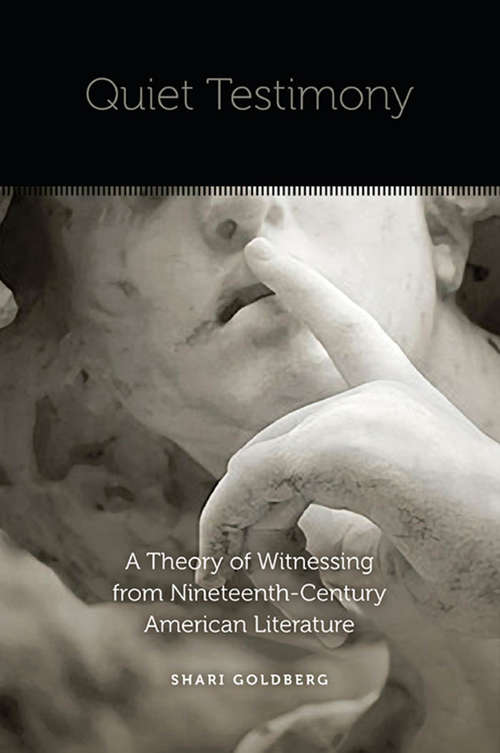Quiet Testimony: A Theory of Witnessing from Nineteenth-Century American Literature
By:
Sign Up Now!
Already a Member? Log In
You must be logged into Bookshare to access this title.
Learn about membership options,
or view our freely available titles.
- Synopsis
- The nineteenth century was a time of extraordinary attunement to the unspoken, the elusively present, and the subtly haunting. Quiet Testimony finds in such attunement a valuable rethinking of what it means to encounter the truth. It argues that four key writers—Emerson, Douglass, Melville, and Henry James—open up the domain of the witness by articulating quietude’s claim on the clamoring world.The premise of quiet testimony responds to urgent questions in critical theory and human rights. Emerson is brought into conversation with Levinas, and Douglass is considered alongside Agamben. Yet the book is steeped in the intellectual climate of the nineteenth century, in which speech and meaning might exceed the bounds of the recognized human subject. In this context, Melville’s characters could read the weather, and James’s could spend an evening with dead companions.By following the path by which ostensibly unremarkable entities come to voice, Quiet Testimony suggests new configurations for ethics, politics, and the literary.
- Copyright:
- 2013
Book Details
- Book Quality:
- Publisher Quality
- Book Size:
- 208 Pages
- ISBN-13:
- 9780823254781
- Related ISBNs:
- 9780823254774
- Publisher:
- Fordham University Press
- Date of Addition:
- 02/05/25
- Copyrighted By:
- Fordham University Press
- Adult content:
- No
- Language:
- English
- Has Image Descriptions:
- No
- Categories:
- Nonfiction, Literature and Fiction, Language Arts, Philosophy
- Submitted By:
- Bookshare Staff
- Usage Restrictions:
- This is a copyrighted book.
Reviews
Other Books
- by Shari Goldberg
- in Nonfiction
- in Literature and Fiction
- in Language Arts
- in Philosophy
